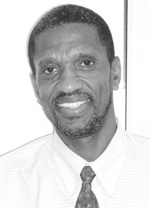DOCTORS AT LARGE

Thirty young professionals who graduated from universities in the region this year are at present still without jobs.
Of this number, six are medical doctors, plus there are two dentists who, as yet, cannot find a place in our medical system.{{more}}
The 30 graduates include, beside the doctors, agronomists and veterinarians, among other professions.
What make these cases more interesting is that they were all sent away over six years ago by the Government of St. Vincent and the Grenadines on government scholarships. And it gets worse. While, at the moment, the Unity Labour Party (ULP) administration is having difficulty finding places for these people, the question is, just what can be expected to happen to the 38 doctors expected to graduate from Cuban universities alone over the next five years? What hope for employment locally can be held out for the engineers, language teachers and other professionals who were all sent to universities in Cuba over the last six years?
We set out to seek clarification for this human resource problem from the Ministry of Health.
Permanent Secretary in the Ministry of Health, Verlene Saunders, said that the problem does not affect just graduates from Cuban universities, though they are in the majority. This year a total of ten doctors graduated from the three centres of study most subscribed to in the region: those based throughout the vast Cuban landscape; St. George’s University in Grenada and from the University of the West Indies, Mona, Jamaica.
The two graduates from Mona chose to pursue their internships in the wider region, while two from the United States offshore institution St. George’s University are headed for the US to intern at hospitals there.
Not so for the Cuban university graduates. Their options are a lot more limited.
They cannot go to the US to intern, as that country requires graduates from non-United States medical schools to pursue a medical licensing process before they can practice medicine in the US.
These graduates, six in all, must seek to do their mandatory internship at home or in the region. And herein lies part of the problem. Permanent Secretary Saunders admits that, at the moment, there are no places available for all six at home.
Two of them have been accepted into the system and are now working; another has volunteered to work without a salary while the others are still out in the cold.
So is it that St. Vincent and the Grenadines does not need doctors? Minister of Health Dr. Douglas Slater, himself a graduate of both the University of Havana, Cuba, and the UWI, where he specialized in Public Health, explained that there are limited places at the moment at the Milton Cato Memorial Hospital to allow the young doctors to pursue their two-year internship there.
Unlike many other professions, a medical graduate needs to undergo a period of internship before that professional is licenced to practice privately or independently. In the past, several medical graduates from Cuban institutions have returned home, done their internship successfully and are now employed with the Ministry of Health.
Of the Vincentian doctors who have graduated from Cuban medical institutions since 1987, three have gone on to specialize at the UWI while two stayed on and specialized in Cuba where the costs are much less than in Jamaica, 90 miles to the south of Cuba.
One of those who specialized in Cuba, gynecologist Dr. Chester Toney, found there was no specialist position available when he returned home. He has been operating a private clinic in Kingstown since then. A second, Dr. Rowena Derrick, specialized in anesthesiology at the University of Havana, returned home in 2002 and now practices at the Milton Cato Memorial Hospital.
But what is to be the lot of these present and future graduates from medical insitutions and other institutions of higher learning?
Minister of Health Dr. Slater said that at the moment there are eight fixed intern positions at the Milton Cato Memorial, two of which were filled by new Cuba- graudated doctors. This left the other four without places.
Dr. Slater acknowledges this, but assures that a decision has been taken by Cabinet to create new positions to be paid at the level of Administrative Cadet, which are usually filled by new univerisity graduates in the Public Service.
He also addressed the issue of dentists saying there is a proposal to impose as of next year, a period of internship of one year.
At the moment, no such stipulation exists for
dentists. Via this innovation, the ministry will absorb the dentists who are home and looking for jobs.
But the Minister of Health was quick to remind that this human resource problem was an inherited manpower planning issue which his administration has been trying to come to terms with.
“This goes beyond just medical graduates,” Dr. Slater said. In fact, he said that since he occupied the post of Medical Officer of Health, before he contested elections and became a member of Parliament, this issue was being faced by several other Caribbean countries.
Many of the CARICOM region jumped at the opportunities to accept free university training for their students offered by the Republic of
Cuba. It seems evident, however, that the
Public Service never followed through with provisions for their eventual return to their home.
This is an issue which Dr. Slater said is being discussed at the highest levels of government with a veiw to seeking solutions, even if extra-regionally.
For a young graduate, however, the wait can be agonizing.









